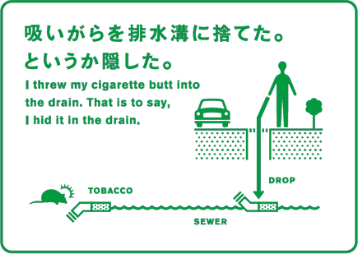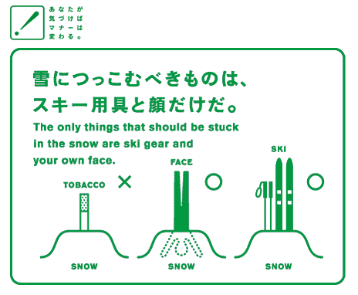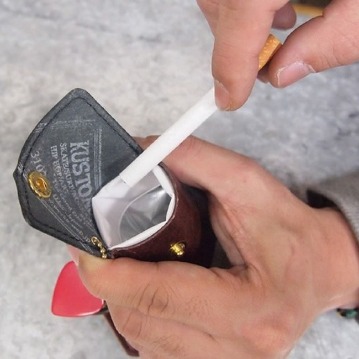The Strange World of Smoking in Japan
Monday, April 22, 2019
Understanding the Upside Down Smoking Rules in Japan

[Edited 22.09.2022]
Japan continues to live up to its reputation of being a smoker-friendly country, despite common complaints by ossans (a slightly derogatory term for older men) about how their staple habits of smoking and drinking are being shunned by young people today. Compared to many countries in the world, in Japan, cigarettes are relatively cheap and smoking is everywhere. The tobacco lobby has skirted growing criticism about the lack of indoor smoking regulations by shifting the conversation to smoking etiquette and segregating smokers from non-smokers. As a result, the government has implemented meek laws to regulate smoking and blanket bans on smoking indoors have been held at bay.
Why is the tobacco lobby so strong in Japan?
Tobacco has been around in Japan since the 16th century, no one really knows how it got here but needless to say it caught on in a big way. In 1898 the government implemented a leaf tax and the sale of tobacco became a nationalized monopoly. During rationing times in World War II the government allowed up the 3 cigarettes per man per day, and this rationing continued until 1950. Lifting the rations lead to the number of male smokers in Japan jumping to 83.7% in 1966. Smoking for that generation in Japan was a luxury and a way of being social, so all spaces – offices, homes, cafés, restaurants, trains, and theatres – were all smoker friendly, needless to say, the government’s vested interest in the prosperity of the tobacco industry had something to do with smoking being completely unregulated. In 1985 the monopoly ended and Japan Tobacco Inc. (known as JT) was formed, and though it was a privately listed company, it was still owned by the Ministry of Finance. The government slowly sold off shares in JT and by 2003 they had sold off one-third of the company and 50% by 2013. However, by law, the Ministry of Finance is required to own a minimum of one-third of the JT.
It’s quite obvious that the convoluted state of tobacco regulations in Japan is directly related to the fact that the government as a whole and, its individual members who own steak in JT, have a vested interest in not just survival but the prosperity of the tobacco industry. This asset has proven to be strangely beneficial as the government has on more than one occasion, sold large chunks of JT stock in order to fund domestic reconstruction efforts such as the reconstruction of North Eastern Japan after the Tohoku Earthquake and Fukushima Nuclear Disaster, a move that is both heartening and confusing at the same time. Currently, the Finance Ministry owns just over 33 % of JT.
So while the Ministry of Health Labor and Welfare is constantly trying to follow smoking regulation recommendations by the WHO the Ministry of Finance and the Tobacco Lobbyists are trying to divert the focus away from the health hazards and universal indoor smoking bans.
Useful Things to Know
The percentage of smokers in 2017 was 28.2% for men and 9% for women, a huge drop from just half a century before.
Taxes are actually quite high. Of course not comparable to France or Singapore but tobacco taxes have incrementally been increasing in 2003, 2006, 2010, and 2018. Currently, a 480 yen pack of cigarettes is more than 50% or 300.43 tax.
The Need for Thorough Measures Against Second Hand Smoke is the announcement that was made by the Ministry of Health Labor and Welfare after Tokyo won the bid for the 2020 Olympics. The announcement led to amendments to the Health Promotion Act, but heavy lobbying by the tobacco industry and opposition from within the government resulted in a weakened version of tobacco regulations being implemented.
The clever argument by the tobacco lobby was this: smokers don’t have the option to step outside to have a cigarette because regulations put into place in the early 2000s prohibited smoking in outdoor public places. This meant that smokers had no choice but to smoke in designated smoking areas indoors.
Why is smoking banned in outdoor public places?
Good Question.
The rationale has to do with the dangers of walking with a lit cigarette. It could burn people's clothes or accidentally graze a child's face, so the logic is that it's safer and better manners to stop and smoke a cigarette. But the smoke itself — that's no problem!
The Ministry of Health Labor and Welfare was desperate to raise Japan’s WHO grading for anti-smoking measures from the lowest to the second lowest, but the strength of the lobby prevailed and establishments under the size of 100 square meters or 55% of all establishments were excluded from smoking regulations. Further, JT’s age-old solution of designated smoking spaces, essentially creating safe havens for smokers despite where the secondhand smoke travels, was the most prominent factor of the regulation. Under the regulations schools, hospitals, and municipal offices were all designated as non-smoking spaces, but, smoking areas could be set up somewhere outdoors on the premises. Currently, most eating and drinking establishments make their own decisions about allowing people to smoke or not, but many fear that banning smoking in their establishment with affect business negatively so they maintain the status quo.
The “Smoking Manners Campaign.” And the prohibition of smoking outdoors
For more than 30 years JT has invested in a “smoking manners“ campaign, more accurately known as Smoking Manners for Harmony and Coexistence. It started in Japan and they gradually introduced similar campaigns in other countries. The general gist of the campaigns is simple. Let's make it easy for smokers and non-smokers to co-exist so let's behave well: don’t burn anyone with your cigarette, don’t litter your cigarette butt, and maintain good smoking manners. All of this was for the sake of etiquette, and not about the hazards of exposing people to secondhand smoke. Here are some of their amusing Public Service Announcement posters:


Portable Ashtrays. A staple part of smoking manners in Japan, an (often stylish) pouch with a flame-resistant lining is used when an ashtray isn’t present nearby, smokers often drop their ash and butts into these pouches in order to display good smoking manners and dispose of it in the trash later.
JT is still arguing that they want to show Japan’s “success” in implementing smoking segregation despite a government survey that showed that 40% of non-smokers were exposed to smoke while eating or drinking.

On April 1, 2020 Japan officially put a ban on smoking in all indoor spaces. Smoking is no longer permitted in schools, hospitals and government buildings (as of 2019) and hotels or offices (as of 2020), however, the ban is riddled with caveats and loopholes.
Exemptions from the ban include cigar bars, hotel rooms, private homes, and small restaurants run by individuals. Small restaurants need to either have a floor space of less than 100 square meters or have a capital of 50 million yen or less to be exempt from the ban. And if you know anything about restaurants in Japan you will know that more than 50% of establishments fit one of these two criteria. In addition, restaurants that do not fit the above criteria can set up designated rooms smoking rooms with specialized exhaust equipment.
Ultimately, the choice of whether smoking is permitted comes down to the choice of the individual establishment. While the trend is shifting toward no smoking indoors, Shōwa Era coffee shops, restaurants, and bars have been unphased by this nationwide ban and Japan is still a very smoker-friendly place.
----------------------------------------------
About the Author

I've been in Japan so long that I say my heart is Japanese. And still this country impresses me from time to time. In those moments I think, "That's why I love living in Japan."








